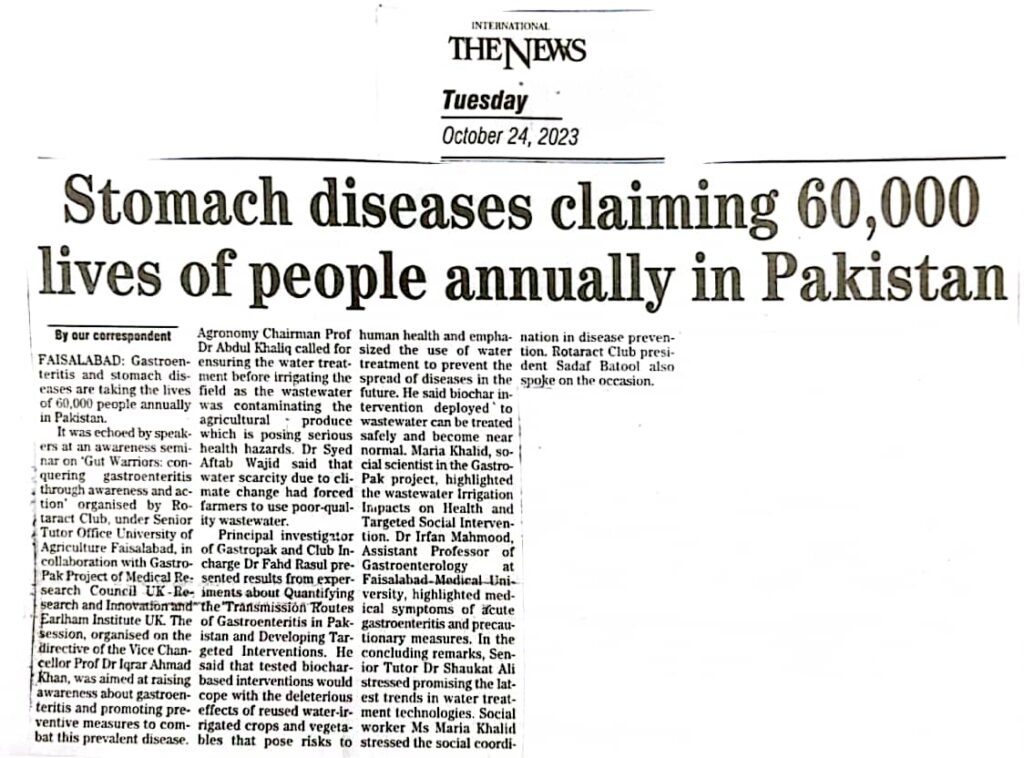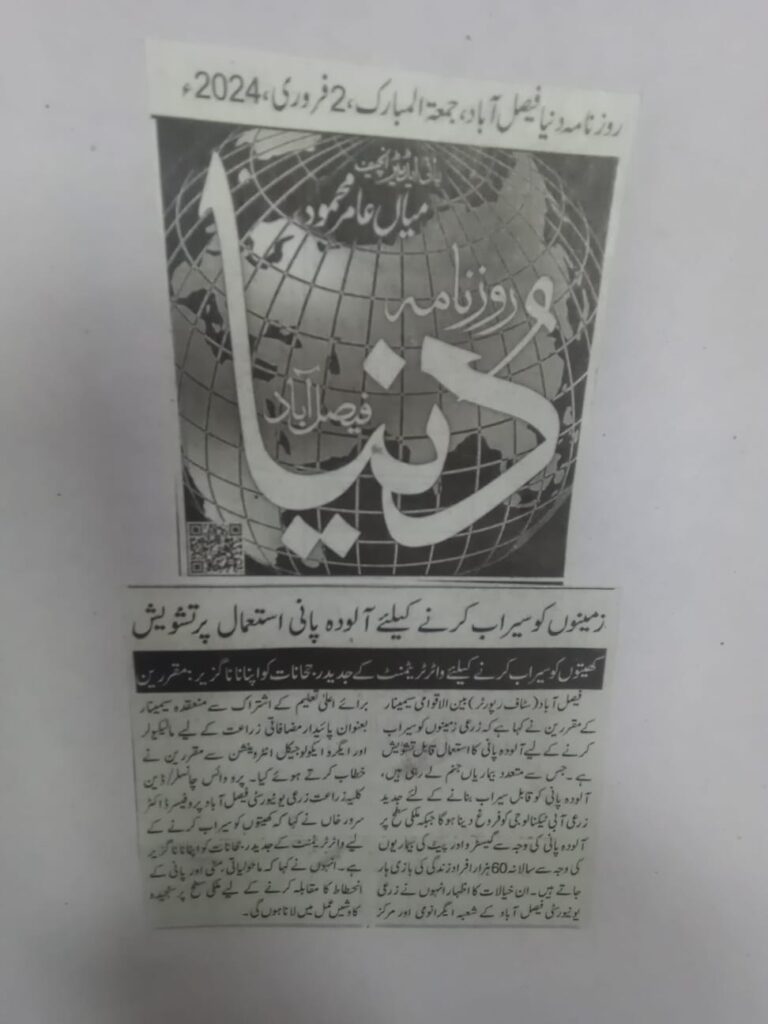FAISALABAD, Feb 01 (APP): Gastroenteritis and stomach diseases are taking the lives of 60,000 people annually in Pakistan. Hence, the wastewater should be treated only for agricultural purposes, because its heavy metals are causing various health issues.
This was stated by experts while addressing an international seminar on ‘Molecular and Agro-Ecological Interventions for Sustainable Peri-Urban Agriculture (A gastroenteritis context)’, organised by the Department of Agronomy and Centre of Agricultural Biochemistry & Biotechnology, University of Agriculture Faisalabad (UAF) here on Thursday.
Pro-Vice Chancellor/Dean Agriculture UAF Prof Dr Muhammad Sarwar Khan also spoke on the occasion and stressed the need to promote kitchen gardening that would ensure safe and healthy food for human beings.
He said that “grow self and stay healthy” should be adopted in addition to using modern techniques for water treatment for irrigation purposes as without treatment the wastewater was contaminating the agricultural produce also.
He said that the country needed a serious intervention to combat environmental, soil and water degradation issues along with proper remediation. He also stressed the need for joint efforts to address these challenges on war footing.
Dr Patrick McKenna from Canfield University UK, while talking about wastewater irrigation for vegetable crops in Faisalabad, said that irrigation water was increasing soil pollution due to industrial activities and peri-urban growth. He said that soil metal concentrations were mostly increasing with wastewater irrigation, and biochar treatment has been mitigated somewhere.
Deputy Chief Scientist National Institute for Biotechnology and Genetic Engineering (NIBGE) Dr Muhammad Afzal said that toxic items such as heavy metals, antibiotics and pathogens in wastewater are resulting in various diseases.
Chairman Agronomy Department UAF Prof. Dr. Abdul Khaliq said that levels of heavy metals and pathogens in the water resources of the country are alarmingly high. He was of the view that biomaterial sciences are essential to provide solutions for environmental issues and to lower the heavy metals impact in the food chain.
Director Center for Agriculture Biochemistry & Biotechnology Dr Bushra Sadia said that management of soils and molecular interventions will ensure sustainable peri-urban agriculture production.
She stressed the need to save the soil and water wisely as the situation was deteriorating especially in poor peri-urban areas.
Dr Fahd Rasul said that tested biochar-based interventions will cope with the deleterious effects of reused water-irrigated crops and vegetables that pose risks to human health and emphasized the use of biochar for water treatment to prevent the spread of gastroenteritis in future. He said biochar intervention deployed to wastewater can be treated safely and eco-friendly way.
Dr Mashkoor Gilani said that antimicrobial resistance is one of the leading causes of death. Excessive use of antibiotics in food animals like dairy and poultry is driving antimicrobial resistance. Pakistan is facing a very grim situation of drug-resistant infections. He said that their work at UAF focused on quantifying antibiotic use and determining transmission routes of drug-resistant bacteria between animals, the environment and humans.
Dr Ghulam Mustafa’s work on molecular aspects of determining transmission routes was practically demonstrated in the lab and hands-on training provided for capacity building of participants.


